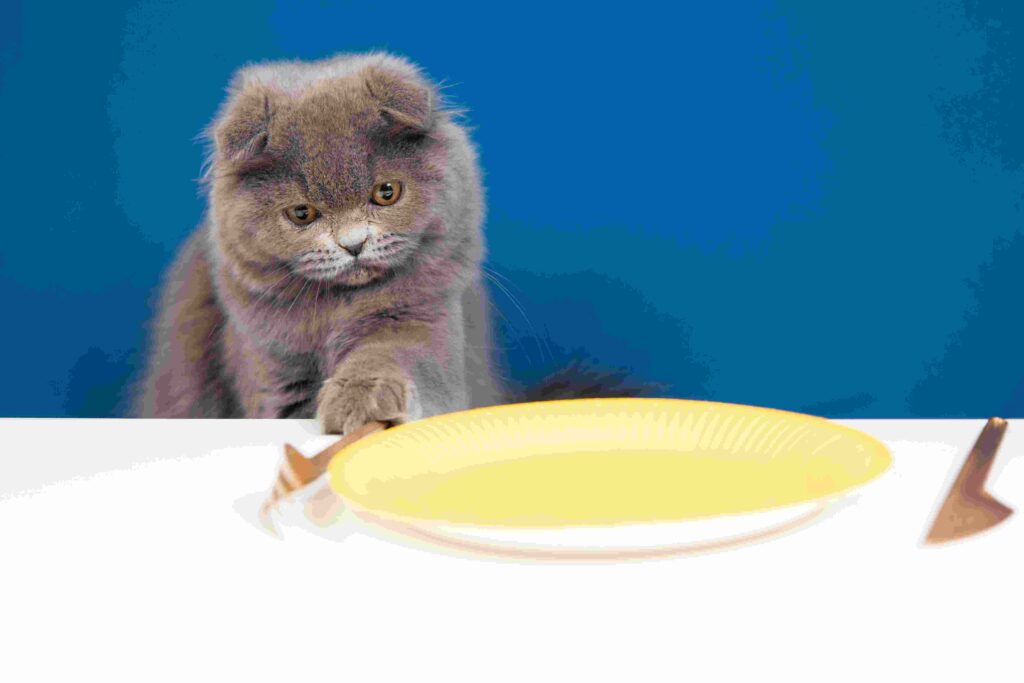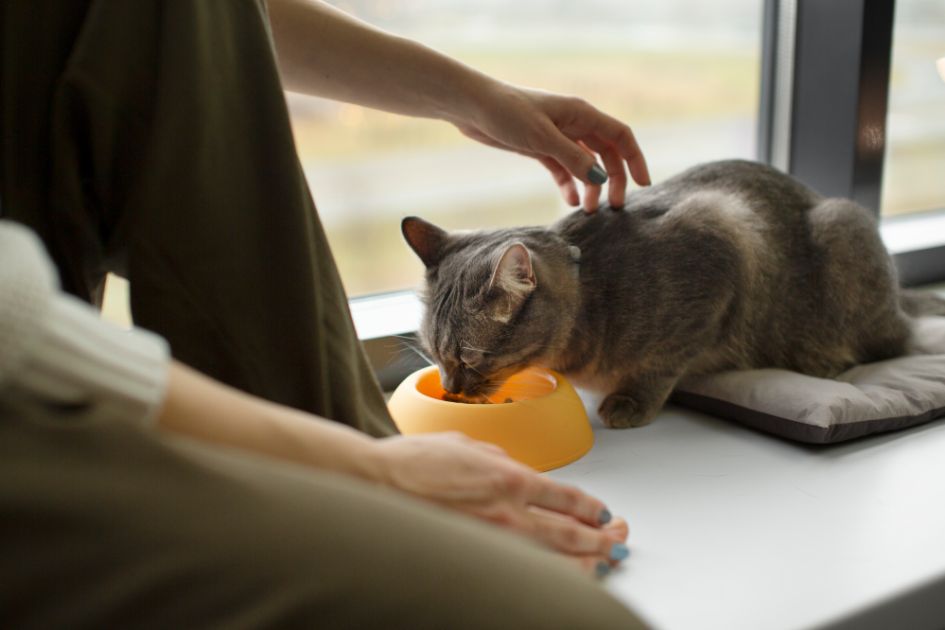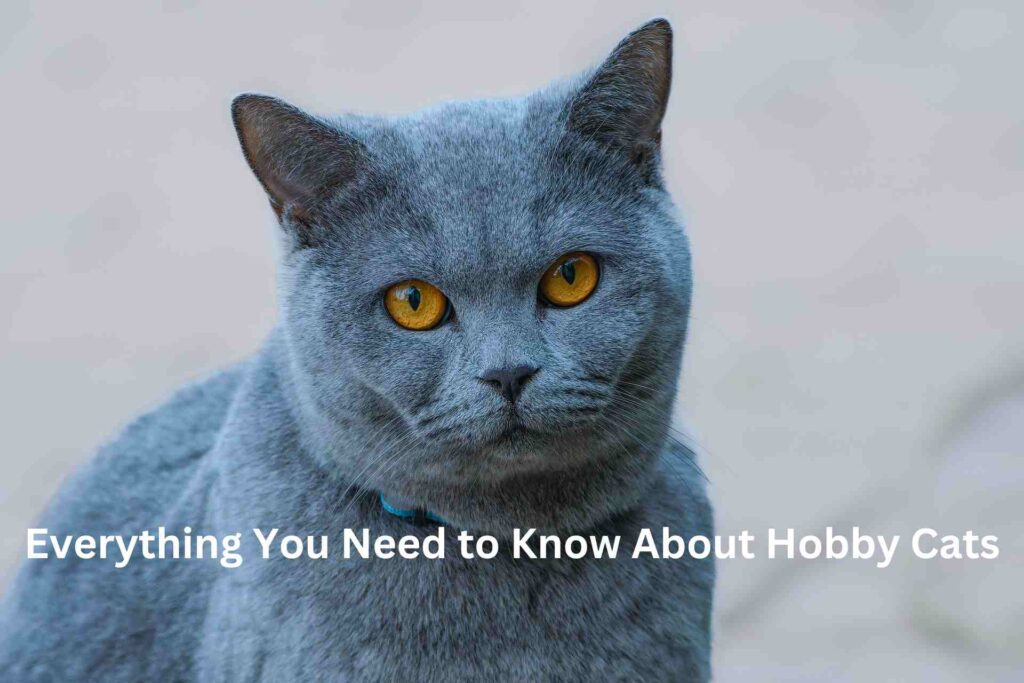
It is common knowledge that cats find cheese to be very alluring if you have ever observed them sniffing around your cheese board or attempting to bite on your cheese sandwich. Cheese and other dairy items, like milk, are bad for our feline companions, though. Giving milk or cream to cats to drink was once quite usual, but we now know that this is not a healthy choice. To get the answer to the question can cats eat cheese, read this article.
While cheese is not poisonous to cats, many of them are really lactose intolerant, which means that the sugar in dairy products is not effectively digested by them, which can lead to stomach problems when they consume milk and cheese. Even in cases where your cat is not allergic to dairy, it is still preferable to feed them good cat food because cheese is particularly high in fat and salt and lacks the essential nutrients that cats require to stay healthy.
Cats Love for Cheese: What’s the Reason?
As carnivores that must consume meat to maintain their health, cats’ taste buds are designed to recognize tastes that are fatty and meaty. This indicates that, even if cheese is unhealthy for them, their appetite is stimulated by foods high in fat. As a result, they are frequently drawn to its delicious flavor.
Curiously, cats don’t seem to be as interested in sugary meals since their taste receptors aren’t as sensitive to sweetness. It’s more likely that the fat content of your chocolate or ice cream will draw them in rather than the sweetness of the flavor. However, bear in mind that chocolate is extremely harmful to cats, so always keep it out of their reach!
Can a Cat Eat Cheese?
Since many cats are lactose intolerant, cheese consumption may cause upset stomachs, leading to vomiting and/or diarrhea. They may also experience lethargy or sluggishness from it. If cheese is a staple in their diet or is consumed regularly, they may also develop skin conditions that cause them to lose fur and become overweight. This is the best way to answer your question of whether can cats eat cheese.

Types of Cheese and its Effect on Cat
Cheddar, parmesan, brie, feta, mozzarella, and blue cheese are unhealthy for cats because they contain lactose, which can cause illness. Furthermore, remember that many plant-based or lactose-free dairy substitutes contain substances that may be harmful to cats, so steer clear of giving them any kind of cheese. It is recommended to steer clear of giving your cat any human food that has a cheese flavor as well, as some foods may not really contain cheese yet still be hazardous or even deadly for cats.
Cheddar
A semi-hard cheese with a low lactose content, cheddar is one of the most often consumed cheeses. That being said, excessive cheddar consumption could upset your cat’s stomach, so avoid doing that.
Swiss
Preferred among sandwich enthusiasts, Swiss cheese is thought to be good for people because it is low in fat and sodium and high in protein. Similar to cheddar, it has less lactose, yet it can still cause stomach problems.
Mozzarella
Many cat owners have seen their feline companions smuggling into the pizza box, but is all that delicious cheese healthy for cats? Not in that way. Because soft cheeses like mozzarella contain a lot of lactose, cats should avoid eating them raw or cooked. Cream cheese and cottage cheese should also be avoided due to their similar dangers.
Brie
Raw milk, which can harbor the dangerous bacteria Salmonella and Listeria, is used to make brie, a well-liked soft cheese. Camembert and blue cheese are some uncooked soft cheeses that should be avoided.
Blue Cheese
Do you know what causes blue cheese to become blue? mold. This kind of cheese, which includes Stilton, is produced using Penicillium mold cultures, which are hazardous to animals. You should not feed moldy cheeses to your cat because of this.

Cheese Party for Cats
It’s acceptable to occasionally offer your cat modest amounts of cat treats that are made especially for them because some of them contain cheese or have a cheese flavor. Additionally, you may use them to entice your cat to take their medication by hiding the pills within. Nonetheless, in case your feline companion is lactose intolerant, these can still cause upset stomach, so monitor your pet and switch to a different kind of treat if they get sick in the future.
Cheese can Cause Allergy in Cats
The majority of cats are intolerant to dairy, despite the widespread misconception that they would never go without a bowl of milk or cream. The Cornell University College of Veterinary Medicine highlights that a large number of cats are lactose intolerant and that consuming dairy products can cause gastrointestinal issues in them, such as inflammation, diarrhea, constipation, and vomiting.
Even a tiny piece of cheese may cause severe reactions in cats who are allergic to dairy products. (In general, cats don’t have many food allergies; nevertheless, dairy, salmon, and red meat are among the more prevalent ones.) If your cat has a dairy allergy, consuming cheese may cause digestive problems and could even compromise their immune system, similar to cats who have a lactose intolerance.
After ingesting lactose products, your cat may exhibit the following symptoms, which are indicative of a dairy allergy:
- Vomiting
- Diarrhea
- Gas
- Itchy and/or red skin patches
- Hair loss
Can Cats Eat Cheese? A Research
If your cat has a cardiac issue or needs to reduce their salt consumption, you should not give them cheese, advises the Cummings Veterinary Medical Centre at Tufts University. Apart from cheese, your cat on a low-sodium diet should not have any contact with deli meat, fast food, potato chips, or bread.
Eat Cheese: Focus on Calories
Treats and foods not prescribed by a veterinarian should make up no more than 8 to 10 percent of a pet’s daily calorie intake. One common human food that can have far too many calories is cheese. In actuality, feeding a 10-pound cat a 1-ounce cube of cheddar cheese is the equivalent of a person consuming two and a half cheeseburgers at once. What’s the greatest way for parents of cats? Instead of consuming more snacks, give yourself more love.
What Type of Cheese Cats Can Eat?
Certain cheeses are better for cats than others if you would like to give your cat a small amount and you are certain that she is not lactose intolerant or allergic to dairy. Seek to choose hard cheeses that are additive-free and plain. Some things to think about can cats eat cheese are:
- Cheddar
- Swiss
- Parmesan
- Provolone
- Gouda
- Goat cheese (though, because this is higher in fat and lower in vitamin D than some other cheeses).
Softer cheeses should be avoided since they frequently contain significantly more lactose. Avoid:
- Cottage cheese
- Cream cheese
- Mozzarella
- Brie
- Blue cheese
- Camembert
- American cheese (this is a processed food that’s very high in carbohydrates)
The Safe Way to Give Your Cat Cheese
If your cat isn’t lactose intolerant or allergic to dairy and you’d like to share a cheese snack with her, search for hard cheeses like Swiss or cheddar. For your cat to avoid eating it all at once, chop it into a little cube (no bigger than a dice!) and divide it up into smaller pieces.
Recall that moderation is essential. Offer cheese only once or twice a week as a special treat; don’t share a second dish. Make sure your cat doesn’t start vomiting or having diarrhea by keeping a close eye on them for a few days.
Can Kittens Eat Cheese?
Additionally, you must not give your kitten cheese. When a kitten is nursing from its mother, their body creates an enzyme to aid in the digestion of the lactose in her milk, which enables them to handle lactose better than adult cats.
However, the lactose-processing enzyme will start to be produced less often once the weaning process starts, which normally happens when the kitten is four weeks old. When your kitten is eight weeks old, theoretically, they will not be able to digest lactose. For kittens, the high fat and salt content of cheese poses an even greater risk compared to adult cats.
Conclusion
Dairy products like cheese are bad for cats. Although too much cheese can upset a cat’s stomach and cause vomiting or diarrhea, they are not poisonous to cats. Long-term cheese consumption can also contribute to obesity. A lot of salt, which can be problematic in excess, is also present in some cheeses. Keep in mind that dogs and cats require significantly less salt than humans do. I’m sure you get the answer to your question can cats eat cheese?
Because they are obligate carnivores, cats only consume meat to stay alive. Treats should make up no more than 5% of a cat’s daily diet; otherwise, they should be limited to meat-based “cat food” and water.
FAQs
Cheese is not toxic to cats, but it’s not an ideal treat for them. Many cats are lactose intolerant, meaning they lack the enzyme lactase needed to digest lactose properly. Eating cheese can lead to digestive upset, such as diarrhea or vomiting.
If your cat eats a small amount of cheese, it may experience mild digestive issues like upset stomach or diarrhea. However, larger amounts could lead to more severe gastrointestinal problems. Always monitor your cat and consult a vet if you notice any concerning symptoms.
It’s best to avoid giving cheese to your cat regularly. If you want to offer a special treat, consider cat-friendly options specifically formulated for their dietary needs. Treats designed for cats are safer and more nutritionally balanced.
Yes, there are plenty of safe alternatives to cheese for cats. Look for treats made specifically for felines, such as those with high protein content and low in dairy. Some cats also enjoy cooked, plain meats or small amounts of certain vegetables. Always ensure any treat is suitable for cats and avoid any harmful ingredients.




